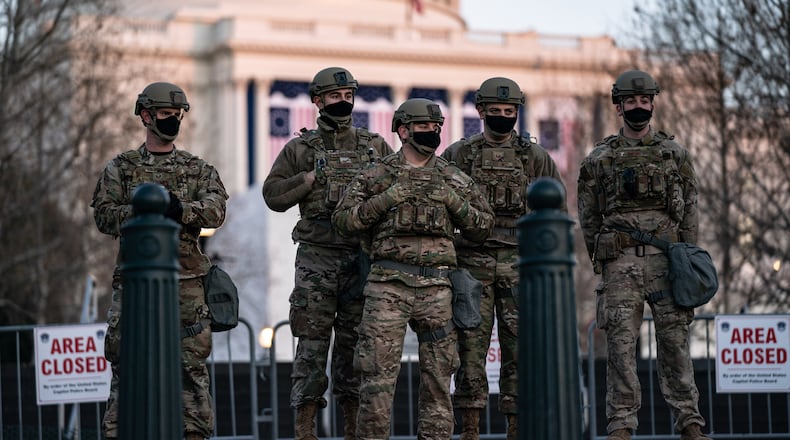“We’ve known we have domestic terrorists in the United States and they are a grave concern. I think the only thing that really changed in regards to events at the (U.S.) Capitol is it was displayed for the whole country, the whole world, on live TV,” DeWine said. “Images continue to be shown that show the gravity of it. But domestic terrorists have been a problem in this country and remain a problem in this country.”
It is unclear how many protesters may show up, on what days or where.
“We don’t have any idea. I wish we did know,” Ohio State Highway Patrol Superintendent Col. Richard Fambro said. “We plan so we can handle crowds from one to thousands.”
DeWine, Fambro and Ohio National Guard Maj. Gen. John Harris declined to detail specific steps being taken or what intelligence indicates might be coming.
“We have other information, frankly, which I’m not going to talk about. We have a heightened sense of concern but we’ve always been concerned about security,” DeWine said.
The First Amendment guarantees the right to peaceably assemble, exercise free speech and petition the government for a redress of grievances. DeWine and Columbus Mayor Andrew Ginther said those rights will be protected, but violence and property destruction will not.
“Our No. 1 goal is to protect life and property. We will protect the capital — that infrastructure. Period,” Fambro said.
Last summer, the Ohio Statehouse was the site of multiple protests over racial justice and public health orders during the pandemic. Demonstrators broke windows and caused other damage at the Statehouse.
On Jan. 6, the Proud Boys, a far-right, male-only political group, clashed with counter-protesters at the Statehouse. Media reports showed fist fights and shoving matches.
In the interest of public safety, the @OhioStatehouse will be closed this coming Sunday, Monday, Tuesday, and Wednesday. All state office buildings in downtown Columbus will be closed on these days as well. Personnel will work from home or other alternate work locations. pic.twitter.com/sEFCZLkeTr
— Governor Mike DeWine (@GovMikeDeWine) January 14, 2021
Tear gas and other irritants may be used to disperse demonstrators if they become violent, Columbus Police Chief Thomas Quinlan said.
When asked if guardsmen are authorized to use deadly force, Harris said they always have the ability to defend themselves as a last resort, but tools such as chemical irritants can be used to avoid using deadly force.

